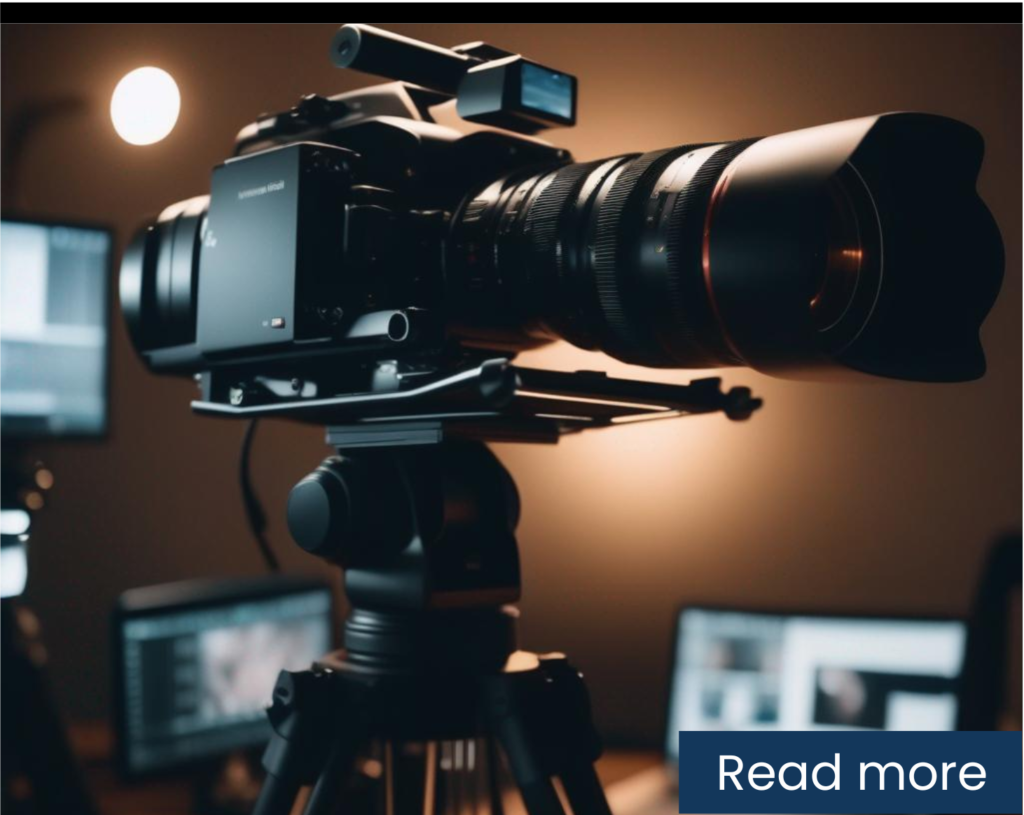Then vs. Than: Quick Tips to Never Get Them Mixed Up Again
Common English Errors Blogs “Let’s Learn, Explore, and Connect to the World” Then vs. Than: Quick Tips to Never Get Them Mixed Up Again Introduction



In the intricate tapestry of the English language, where each thread is a word woven into sentences and stories, clarity and precision are paramount. Yet, amidst this linguistic richness, certain pitfalls await the unwary, capable of unraveling the message we intend to convey. Among these are the twin words “your” and “you’re” — so similar in sound, yet worlds apart in meaning. This conflation, often made in haste or through a misunderstanding of English fundamentals, can obscure our intentions, leading to confusion or, at times, unintended humor.
Understanding the distinction between “your” and “you’re” is not merely an exercise in grammatical pedantry but a pursuit of clarity in communication. “Your,” a possessive pronoun, and “you’re,” a contraction for “you are,” serve unique purposes within the framework of English grammar. Their correct usage empowers us to express ownership and state of being with precision, facilitating a deeper connection with our audience, whether in writing or speech.

This blog post sets out to clarify these frequently misunderstood terms, with the goal of making English easier for everyday use. Through a detailed exploration of “your” and “you’re,” we will uncover the nuances that define their usage, supported by examples and practical tips. Our goal is to equip you with the knowledge to navigate these grammatical waters with ease, enhancing your confidence in communication. By the end of this guide, the distinction between “your” and “you’re” will not only be clear but will also become a natural part of your linguistic toolkit, simplifying your English and enriching your interactions. Let’s unravel the mystery of “Your vs. You’re,” stepping into clearer, more effective English usage together.

At the core of many English language conundrums lies the challenge of differentiating between words that sound alike but have entirely different meanings and functions. Two prime examples of this linguistic phenomenon are “your” and “you’re.” To communicate effectively and avoid common pitfalls, it’s essential to grasp the fundamental difference between these terms, recognizing that one signifies possession while the other is a contraction representing a state of being.
“Your” is a possessive pronoun that indicates ownership or association with the person or people being spoken to. It signifies ownership, relationship, or association. For instance, when we say, “Your book is on the table,” we mean the book belonging to you is on the table. “Your” is all about possession, making clear who the subject or object in question belongs to.
You’re, on the other hand, is a contraction of “you are,” a straightforward abbreviation that merges the pronoun “you” with the verb “are.” Contractions like “you’re” are designed to streamline speech and writing, making language flow more naturally. For example, “You’re welcome to join us for dinner” translates to “You are welcome to join us for dinner.” Here, “you’re” is used to describe a condition or state of being related to the person being addressed.
Mastering these terms depends on recognizing their specific uses: “your” indicates possession, while “you’re” signifies a state of being. Remembering this distinction is crucial for clear and accurate communication. Whenever you’re in doubt, a simple test can clarify which form is correct: try substituting “you are” for “you’re.” If the sentence still makes sense, then “you’re” is the right choice. If not, “your” is likely what you intend to use.
Grasping the basics of “your” versus “you’re” not only clarifies these terms but also enhances your overall mastery of English, enabling more precise and effective expression in everyday communication.

Delving deeper into the possessive pronoun “your,” we uncover its significance in English communication. This term, seemingly simple, carries the weight of indicating ownership or association, an essential function that aids in the clarity and precision of our expressions. By exploring “your” further, we aim to illuminate its proper use, ensuring that its role in denoting possession becomes second nature in your daily communication.
“Your” plays a pivotal role in English by denoting that something belongs to the person or people being addressed. It’s a possessive pronoun that helps us express ownership, connection, or association without cumbersome repetitions or awkward constructions. From personal belongings to abstract concepts, “your” seamlessly attributes possession, making sentences clear and direct.
“Is this your idea of a joke?” (Ownership)
“Your presence at the ceremony will mean a lot to us.” (Association)
Each example showcases “your” in action, highlighting its ability to convey a sense of belonging or relation to the audience.

Association with Ownership: Always link “your” with ownership or association. If the subject in question can be owned or is related to someone, “your” is likely the correct choice.
Replacement Technique: Try replacing “your” with “belonging to you” in a sentence. If the sentence retains its original meaning, “your” is used correctly. For instance, “Your dedication” becomes “The dedication belonging to you.”
Contextual Awareness: Pay attention to the context. “Your” is used when addressing someone directly or discussing something that pertains to them. It’s never used for describing the state of being.
 The accurate use of “your” is more than a grammatical correctness; it’s about enhancing the clarity and effectiveness of communication. In both written and spoken English, using “your” appropriately ensures that your message is understood as intended, with no room for ambiguity regarding ownership or association.
The accurate use of “your” is more than a grammatical correctness; it’s about enhancing the clarity and effectiveness of communication. In both written and spoken English, using “your” appropriately ensures that your message is understood as intended, with no room for ambiguity regarding ownership or association.
Incorrect: “You’re skills are impressive.”
Correct: “Your skills are impressive.”
In the incorrect example, “you’re” incorrectly suggests a state of being, while “your” correctly attributes possession of the skills to the person being addressed.
 Understanding and applying the principles of “your” empowers you to communicate more effectively, whether drafting an email, engaging in conversation, or writing creatively. Remember, the essence of mastering “your” lies in recognizing its role in indicating possession and its contribution to the coherence and persuasiveness of your messages. By practicing the tips provided and remaining mindful of “your” in your everyday use, you’ll find that its correct application becomes intuitive, enhancing your English proficiency and confidence.
Understanding and applying the principles of “your” empowers you to communicate more effectively, whether drafting an email, engaging in conversation, or writing creatively. Remember, the essence of mastering “your” lies in recognizing its role in indicating possession and its contribution to the coherence and persuasiveness of your messages. By practicing the tips provided and remaining mindful of “your” in your everyday use, you’ll find that its correct application becomes intuitive, enhancing your English proficiency and confidence.

At its core, “you’re” represents the contraction of “you are,” serving as a grammatical shortcut that merges subject and verb into a cohesive, streamlined expression. This contraction is emblematic of English’s flexibility, bridging the gap between formal and casual discourse and making interactions more fluid. It’s particularly favored in spoken English and informal writing, where brevity and ease of understanding are prized.
“You’re capable of incredible things.” (Affirmation of ability)
“You’re not alone in this journey.” (Assurance of companionship)
Each example underscores “you’re” as a vehicle for expressing belief, reassurance, or any state of being directly linked to the second person.
To distinguish “you’re” confidently from “your,” consider these strategies:
Perform the Expansion Test: Regularly decompose “you’re” back into its original form, “you are.” This practice confirms its correctness in context. If the sentence loses meaning or coherence with “you are,” then a reevaluation is necessary.
Contextualize State Over Possession: Train your mind to see “you’re” through the lens of actions and states rather than possession. “You’re” will never signify ownership but always a condition or action that “you” are experiencing.
Employ Mnemonics: Link “you’re” with verbs that typically follow “are” (e.g., “You’re thinking,” “You’re hoping”). This linkage solidifies its role in your vocabulary as distinctly action-oriented.
The misuse of “you’re” often stems from confusion with “your” or a lack of understanding regarding contractions. Recognizing these errors is the first step toward avoiding them:
Illustrative Corrections:
Incorrect: “Your invited to the event next week.”
Correct: “You’re invited to the event next week.”
In the incorrect example, the intended meaning is to convey an invitation (a state of being invited), necessitating the use of “you’re” rather than “your.”

Embracing “you’re” in your daily language not only showcases grammatical acumen but also enriches your expressions, making them more engaging and direct. Its proper use signals an understanding of English’s nuances, fostering clearer, more vibrant interactions. By consistently applying the outlined strategies and remaining vigilant about common pitfalls, the distinction between “your” and “you’re” will become intuitive. This mastery not only bolsters your grammatical precision but also elevates the quality of your communication, ensuring that your intended messages are received loud and clear.

The misuse of “your” and “you’re” often stems from their phonetic similarity, leading to frequent errors in both spoken and written English. Here are some typical mistakes:
Confusing Possession with Being: Using “your” when the intention is to describe a state of being or action (“Your late for the meeting” instead of “You’re late for the meeting”).
Contracting Incorrectly: Opting for “you’re” when indicating possession or belonging (“I think you’re coat is in the other room” should be “I think your coat is in the other room”).
These errors not only disrupt the flow of communication but also detract from the credibility of the speaker or writer.
Mitigating these errors involves a combination of mindfulness, practice, and strategic proofreading. Here are some effective strategies:
Substitution Check: For every “you’re” in your text, substitute “you are.” If the sentence still makes sense, “you’re” is used correctly. If not, replace it with “your.” This simple test can quickly clarify which form is appropriate.
Read Aloud: Reading your text aloud can help catch errors that might be overlooked when reading silently. Hearing “your” and “you’re” in context often clarifies which is correct based on the sentence’s meaning.
Peer Review: Having someone else review your work can be invaluable. A fresh set of eyes might catch mistakes you’ve glossed over, including the misuse of “your” and “you’re.”
Practice Makes Perfect: Regularly practicing writing sentences that correctly use both “your” and “you’re” can improve your instinctual understanding of their proper usage. Consider creating your own exercises or seeking out online resources for practice.
Mind the Context: Always consider the sentence’s context. If you’re indicating possession, “your” is the go-to choice. If you’re contracting “you are,” then “you’re” is correct. Keeping the context in mind can prevent most mistakes.
Incorporating these techniques into your writing process can greatly diminish errors in using “your” and “you’re,” thus improving both your written and spoken English. Remember, mastering the distinction between these two terms is a vital step toward clear and effective communication.

Embarking on the journey to demystify the confusion between “your” and “you’re” has not only illuminated these terms’ distinct roles within the English language but also underscored the profound impact that such seemingly minor distinctions can have on the clarity and effectiveness of our communication. Throughout this exploration, we have delved deep into the heart of English grammar, unearthing the nuances that define “your” as a possessive pronoun indicating ownership, and “you’re,” a contraction for “you are,” signifying a state of being.
The critical insights we’ve shared include the foundational understanding of “your” and “you’re,” highlighting their grammatical categories and primary uses. “Your” is integral for denoting possession, attributing something to the person addressed, thereby enriching our sentences with clarity about whom or what we refer. Conversely, “you’re” simplifies expressions of being, condition, or action related to the subject, making our language more fluid and accessible.

By engaging with practical examples, we’ve illustrated the correct application of each term, providing a concrete foundation upon which to build your understanding and usage. The exercises and quizzes offered have been designed not merely as tests of knowledge but as stepping stones towards greater confidence in employing these terms accurately in everyday communication.
Moreover, we’ve outlined common mistakes to arm you with the awareness necessary to navigate these pitfalls successfully. Strategies such as the substitution test for “you’re” and contextual awareness for “your” have been emphasized as vital tools in your grammatical arsenal, ensuring that you can distinguish between possession and state of being with ease.
As we conclude this comprehensive exploration, the call to action is clear and compelling: Embrace the simplicity and clarity that correct usage of “your” and “you’re” brings to English communication. This is not merely about adhering to grammatical rules but about seizing the opportunity to express yourself with precision and confidence. The mastery of these terms opens up avenues for clearer, more impactful communication, whether in personal conversations, professional emails, or creative writing endeavors.

Let this guide be a reminder that the power of clear communication lies in the details. The correct use of “your” and “you’re” is emblematic of a broader commitment to expressing ourselves thoughtfully and accurately. As you move forward, carry with you the knowledge and strategies shared here, and watch as doors open to deeper understanding and connection with your audience.
In the end, mastering “your” and “you’re” is more than a grammatical achievement; it’s a step towards honing your voice in the vast and vibrant world of English communication. Embrace this journey with enthusiasm, and let the clarity of your language reflect the depth of your thoughts and the sincerity of your intentions.
Common English Errors Blogs “Let’s Learn, Explore, and Connect to the World” Then vs. Than: Quick Tips to Never Get Them Mixed Up Again Introduction
Digital Marketing Blogs “Let’s Learn, Explore, and Connect to the World” Facebook Live and Video Marketing: Engaging Audiences in Real-Time and Creating Content Introduction In
Master conversation with ‘Comic Collections’ (Book 2) by Cassia North. A fun, insightful guide to professional and casual communication, packed with engaging comics and practical tips for every interaction!



